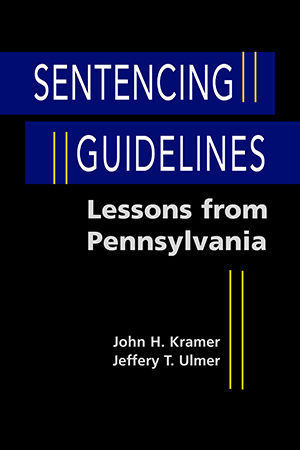John H. Kramer and Jeffrey T. Ulmer
Sentencing guidelines, adopted by many states in recent decades, are intended to eliminate the impact of bias based on factors ranging from a criminal’s ethnicity or gender to the county in which he or she was convicted. But have these guidelines achieved their goal of “fair punishment”? And how do the concerns of local courts shape sentencing under guidelines? In this comprehensive examination of the development, reform, and application of sentencing guidelines in one of the first states to employ them, John Kramer and Jeffery Ulmer offer a nuanced analysis of the complexities involved in administering justice.
John H. Kramer is professor of sociology and crime, law, and justice at Pennsylvania State University. Formerly, he was executive director of the Pennsylvania Commission on Sentencing, and he served as staff director of the US Sentencing Commission in 1996-1998. Jeffery T. Ulmer is associate professor of sociology and crime, law, and justice at Pennsylvania State University. He is author of Social Worlds of Sentencing and coauthor (with Darrell J. Steffensmeier) of Confessions of a Dying Thief.
"Offers not only a depiction of sentencing practices in Pennsylvania but also how research and policies in other states can develop through the lessons of Pennsylvania."—Jennifer L. Huck,
Criminal Justice Policy Review
"An important case study on sentencing guidelines that everyone concerned with equal justice under law must read.... Highly recommended."—
Choice
"Impressive.... Kramer and Ulmer provide a rare combination of profound insider information and theoretical reasoning with sophisticated empirical work. Anyone concerned with sentencing guidelines or reform must read this book."—Joachim J. Salvesberg, University of Minnesota
"A fascinating story of one state's struggle to craft both meaningful and politically palatable sentencing guidelines. The authors provide a comprehensive and theoretically informed evaluation of the complex issues involved. The result is essential reading for anyone interested in sentencing reforms and their impact."—Cassia Spohn, Arizona State University






